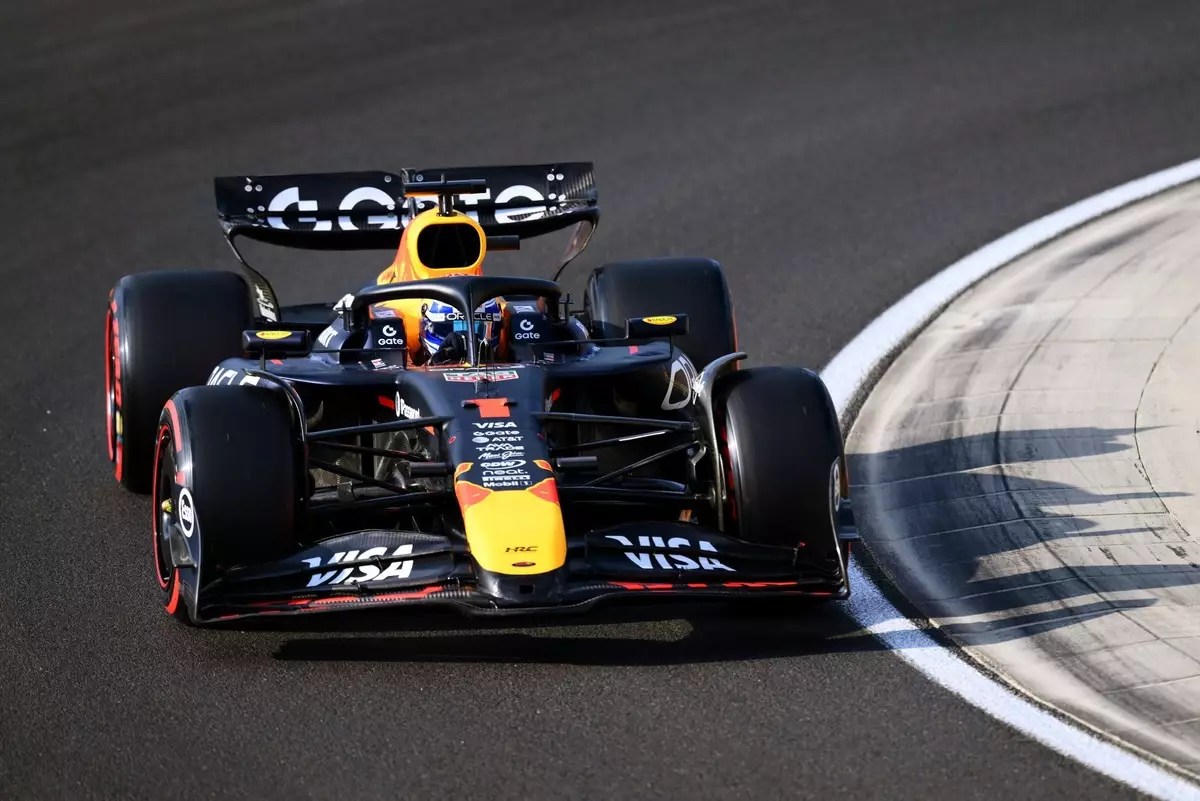Red Bull Racing, renowned for its engineering excellence and consistent dominance, faced an unusually bleak start to the Hungarian Grand Prix weekend. Max Verstappen, the reigning champion, expressed frustration and concern, describing his experience with the RB21 as “driving on ice.” This metaphor encapsulates the core issue: a lack of grip and balance that seems to have evaporated suddenly, leaving the team grappling with a car that refuses to perform. Unlike the predictable, finely-tuned machines that often characterize Red Bull’s racing efforts, this weekend hints at deeper, systemic problems that could threaten their championship ambitions.
What’s most alarming is the description of the car as “undriveable” at this stage. For a team that prides itself on aerodynamic efficiency, meticulous setup, and strategic ingenuity, a sudden decline in performance indicates fundamental flaws. The initial sessions revealed a car that was not just struggling to generate grip, but one that exhibited instability and a pronounced lack of control. This suggests that Red Bull might be battling more than just a setup tweak; they may be facing an underlying issue with their baseline configuration or a misstep in recent aerodynamic updates. If such problems cannot be swiftly diagnosed and remedied, it could spell trouble for their consistency and competitiveness in a tightly contested season.
The Critical Need for Rapid Problem-Solving
Verstappen’s acknowledgment of “nothing really working” highlights the severity of the situation. The team’s immediate response—a comprehensive debrief with the engineers and team leadership—demonstrates their awareness that swift action is vital. Historically, Red Bull’s ability to rapidly adapt and refine their setup has given them an edge, especially in challenging circuits. However, this weekend’s struggles seem to be more persistent and less amenable to quick fixes.
Hitting the reset button overnight will require a meticulous diagnosis. Is the issue aerodynamic, mechanical, or perhaps related to tire wear and management? Without clarity, the team risks throwing darts in the dark. Verstappen’s comments about the unknown cause and the need to “investigate overnight” underline a fragile situation. If they cannot identify the root cause, the performance gap could widen, giving rivals like McLaren a precious window to gain ground.
Furthermore, Verstappen’s recent off-track incident—throwing out a towel and receiving a warning from the stewards—serves as a symbolic reflection of the tense atmosphere within the team. When technical issues compound with on-track frustrations and minor regulatory infractions, it often indicates internal stress or a team fighting to regain its composure. Such distractions could hinder their focus, especially in a weekend where every detail counts.
The Broader Implications for Red Bull’s Championship Bid
Currently sitting third in the championship standings, Verstappen faces more than just a challenging weekend—he is experiencing a departure from the methodical dominance that has characterized his recent seasons. If Red Bull cannot resolve their grip and balance issues quickly, they risk losing crucial points that could undermine their title defense.
The competition is intensifying, with teams like McLaren making significant strides. Their fast-laps and consistent performance have raised questions about whether Red Bull’s recent technical upgrades have plateaued or if they are missing underlying issues. The fact that Yuki Tsunoda, Verstappen’s teammate, is also feeling the strain—finishing ninth and citing grip issues—further underscores that this isn’t just a driver problem but a team-wide challenge.
For Red Bull’s head engineers and strategists, this weekend presents a test of their innovation, problem-solving, and resilience. The real measure of their response will be seen not just in Saturday’s qualifying or Sunday’s race outcome, but in their ability to diagnose, adapt, and come back stronger. If their past track record is any indication, they may find a solution—but only if they confront their current vulnerabilities head-on, rather than allowing them to fester and grow.
Red Bull’s struggles at Hungary signify more than just a temporary dip in performance. They expose underlying vulnerabilities that could reshape the championship landscape if left unaddressed. The weekend’s uncertainties serve as a stark reminder that even the most dominant teams are inherently fallible—requiring continuous innovation and relentless problem-solving to sustain success.


Leave a Reply